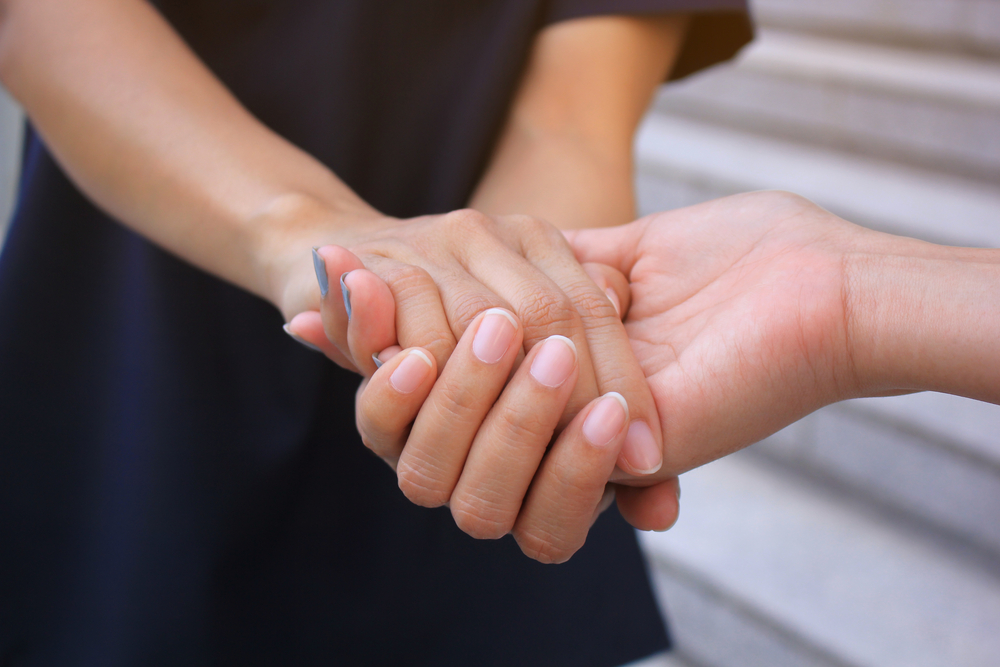One woman every six days is murdered by their intimate partner in Canada. Women are at the highest risk of violence after the relationship ends, which is a time when many women are in and out of family court proceedings, often with their abusive partner using the court system itself to continue the violence.
When women face the highest risk of intimate partner violence, who in the legal system is having the greatest impact to help keep them safe? Front-line workers, the majority of whom are women, working in a variety of roles to support survivors.
This support includes helping them find safe housing or navigate their family law proceeding. Everyone, from duty counsel to sheriffs to judges, working in the family court system needs family violence education informed by the expertise of these women.
With financial support from Women and Gender Equality, Rise Women’s Legal Centre has been conducting research on how the legal system in B.C. responds when family violence is present. Our research, which began in 2017 has involved listening to more than 100 women with experiences of violence across B.C., as well as judges, lawyers, social workers, psychologists, police, front-line workers, and nurses.
What we heard over and over was that when women leave relationships and go through the family court system, the legal process and the actors within it are often exacerbating the danger for them and their children. Women who have experienced intimate partner violence have an uphill battle to be believed, or even listened to, by police, lawyers, and judges.
For example, the vast majority of women we spoke with explained that their lawyers did not ask questions to assess their safety. Despite the requirement that lawyers screen for family violence in B.C., there is no mandatory training for family law lawyers on what this looks like and how best to support their clients.
When the women did raise their safety concerns, some lawyers were dismissive, in one case saying “just get back to the legal stuff,” while another told her that she presented horribly in court and to “let it go because nobody is going to believe you… it sounds like you’re exaggerating.”
A significant number of the women we talked to had partners who threatened their lives, or the lives of their children, while they tried to access the courts. In Canada, men account for 95 per cent of those accused of murder-suicide, with their intimate partners being the most likely victims. The severity of intimate partner violence is exacerbated for Indigenous women, racialized women, immigrants and refugees, LGBTQ2S+ folks, and women with disabilities.
The access to justice crisis means that many women who need legal aid often do not qualify, and when they do the hours are egregiously insufficient, rarely resulting in long term orders. When women cannot access lawyers, front-line workers are often the ones to support women to face their abusers in court.
Front-line workers are also filling the knowledge gap in the legal system. While many women did share positive examples where police, lawyers, and judges, really “got it” and understood their experiences and their safety risks, and helped them, even by showing compassion, the opposite was mostly true.
However, when we asked women if there was something positive about their experiences going through the family court proceedings, repeatedly they answered with the name of the front-line worker who supported them, one woman adding, “She saved my life. I wouldn’t be here if it wasn’t for her.”
This is about how society values women. The prevalence of violence towards women is directly connected to a legal system that isn’t set up to effectively respond to it. Front-line workers have a dramatic impact on women’s safety yet are frequently found working on low salaries in organizations with inadequate funding. ![]()
Read more: Rights + Justice, Gender + Sexuality
















Tyee Commenting Guidelines
Comments that violate guidelines risk being deleted, and violations may result in a temporary or permanent user ban. Maintain the spirit of good conversation to stay in the discussion.
*Please note The Tyee is not a forum for spreading misinformation about COVID-19, denying its existence or minimizing its risk to public health.
Do:
Do not: